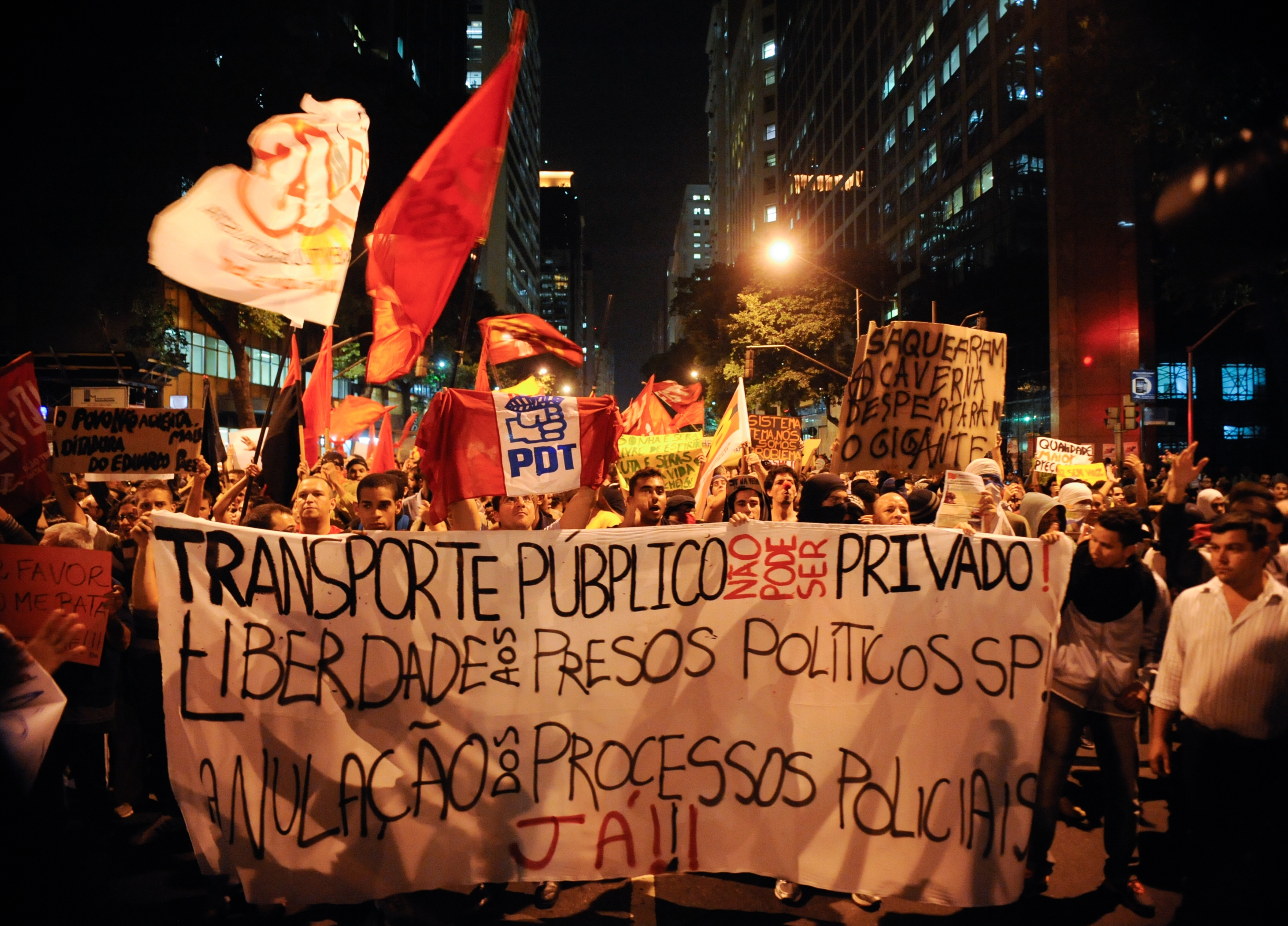
Good Urban Services Are More Important than Spectacles
In ancient Rome the masses were kept quiescent by free bread and the appalling spectacle of the Coliseum. Now it is the International Olympic Committee (IOC) and the International Football Federation Agency (FIFA) who play this role.
While Erdogan seems to have lost his mojo over the decision to pave over the Gezi park with another shopping centre, the events in Brazil suggest that good urban services are more important than spectacles.
Urban Planning at The Forefront
In both cases the question of urban planning is at the forefront. Istanbul is one of the World’s fastest growing cities with a population of over 20million. But it has few open spaces and the mantra of private sector development threatens even these. The demonstrations started over the proposal to redevelop the Gezi park as a shopping mall.
In Brazil, the ostensible trigger for the demonstrations was an increase in bus prices. But the underlying frustrations have quickly been revealed. A football stadium in the capital city of Brasilia will cost 700 million USD even though the city has no football team to use the stadium after the cup. The total spending on the World Cup is estimated at four times that for the South African World Cup even though Brazil is a famous footballing nation with many existing stadiums. FIFA was heavily criticised in South Africa for its free riding – they reportedly made over 2billion US$, tax exemption and bungs while South Africa picked up all the bills.
Ironically, in Brazil, the World Cup is even more hated than the Olympics because it touches more cities. Stadia are being built or renovated in manycities across the country. In contrast for the Olympics, Rio de Janeiro suffer the Olympics alone. Whereas the citizens of London were largely duped with the promise of legacy – in which one of the few really large remaining development sites in London is being redeveloped for luxury housing at public expense with massive transport infrastructure – in Brazil the reality is more obvious to the citizens. Despite an impressive decade of growth, the ordinary citizen faces third rate public services for health, education and transport. Major projects result in the bulldozing of Favelas and relocation to peripheral locations. Nothing is done about the street children and there are rumours about that they will be bussed out of the cities for both the football and the Olympics.
The crisis in Brazil reflects a growing problem in the BRICS countries as a group. Their governance has failed to keep up with their economies. Urbanisation has been rapid, but has produced poor living environments. China’s double digit growth has slowed to 7.5% with the underlying threat of a banking crisis and rampant corruption among the cadres in the cities. India’s growth is stalling while corruption scandals escalate. Brazil has two million demonstrating and there is a risk that they will disrupt the showpiece events in 2014 and 2016. Meanwhile South Africa limps along with an under-achieving economy, a government that turned its guns on striking miners while the news media wait on the health of Mandela.
The fact that cities are the locus of the demonstrations is no surprise. Ever since Peterloo and the Paris Commune it has been in the cities that have been most feared by corrupt rulers. Haussmann refashioned Paris so that citizens could be contained in their quartiers by cannons pointing down the avenues and boulevards. Trafalgar square in London was re-designed to allow a small number of troops to contain demonstrations against the steep back wall (now converted into a pedestrian precinct in front of the National Gallery).
What unites the uprisings in both Turkey and Brazil is that citizens are denouncing large projects which appear to benefit the private sectorand making a call for their right to the city. Whatever else the result, the IOC and FIFA will think twice about where to go in the future.
 by Peter Ramsden,
by Peter Ramsden,
URBACT expert
Facing the rapid expansion of their cities, city dwellers in the BRICS express their will to have a voice on urban planning and on public services. Organising participation of stakeholders in urban planning processes is also today a major challenge for European cities, a challenge adressed within URBACT via exchanges between cities and via the experience of the URBACT Local Support Groups. For this purpose, the URBACT thematic reports ‘Cities of Tomorrow: Action Today‘ recently published present case studies and propose findings that can be used all over the world by urban planning practionners.






Peter, I’m not sure (at least in the Brazilian case) that there is a clear link between the huge urbanistic projects related to the Olimpic Games and the Football World cup, with the failures in how growth is redistributed among poor people (trickle down processes). In Brazil the extended riots taking place in the biggest Brazilian cities were starred mainly by middle class people, that don’t suffer urban segregation. There claims are not linked with poverty or social exclusion, but with low qulaity democracy and civic frustration. On the other hand, the current governament is making huge efforts in reducing poverty and enhancing social inclusion. (Obviosuly, in Brazil nothing is enough…)
[…] de un artículo de opinión de Peter Ramsden, experto de […]